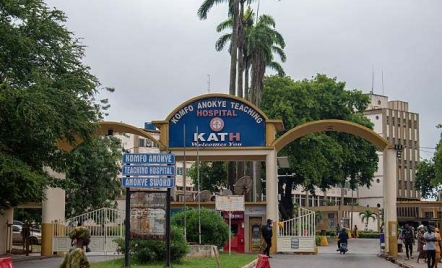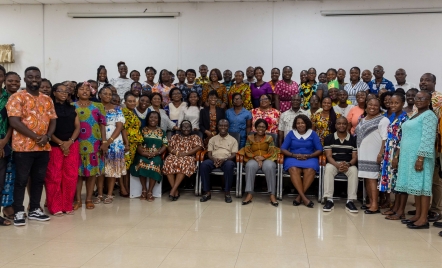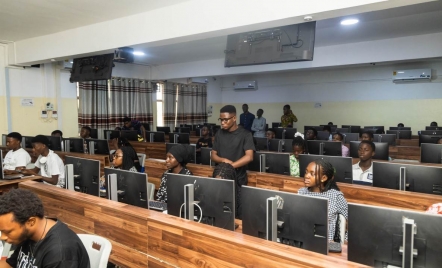The Vice Dean of the Faculty of Agriculture at the Kwame Nkrumah University of Science and Technology (KNUST), Prof. Nana Ewusi-Mensah, has urged educators and institutions to leverage Artificial Intelligence (AI) to transform traditional teaching and learning methods.
Speaking at the opening session of the 11th KNUST Summer School, hosted by the College of Agriculture and Natural Resources (CANR), Prof. Ewusi-Mensah called for the adoption of adaptive and competency-based learning models that utilize AI to personalize education and improve learning outcomes.

“If we want to go by the traditional method, that’s fine, but it will take a long time to make progress. If we leverage AI and work within its framework, this transformation becomes much easier,” he said.
He described the future of education as “not artificial intelligence, but augmented intelligence,” emphasizing that educators must collaborate with technology rather than compete with it.
“Our minds must work alongside the mind of the machine,” he noted, adding that the integration of AI should empower teachers rather than replace them.
Prof. Ewusi-Mensah also highlighted the potential of technology to address Africa’s pressing development challenges, particularly in agriculture and food security.
“According to the World Bank, Africa’s population will reach about 2.5 billion in the coming years. Strategically, we need to start discussing innovative ways to feed ourselves. This is why AI is so important,” he said.
He added that proven technological tools should be introduced into the classroom to ensure that the next generation of students are industry-relevant and equipped to use digital solutions to improve agricultural productivity.
Meanwhile, Dr. (Mrs.) Francisca Adoma Acheampong, the second speaker, focused her presentation on assessing institutional capacity and ethical readiness for AI adoption.
She introduced an AI Readiness Score Calculator, a tool designed to measure how prepared staff within the College are to integrate AI into academic and administrative processes.
“AI has huge transformative benefits in the digital world,” Dr. Acheampong explained. “But we should be clear-eyed about the pilot processes. It’s important to engage stakeholders, understand their specific needs, and design solutions that respond directly to those needs,” she noted.
On his part, the Provost of the College, Prof. Dadson Awunyo-Vitor, emphasized the timeliness of this year’s theme, noting that the agricultural sector stands to gain significantly from AI integration.

“This summer school is very important because we are at a point where we cannot leave artificial intelligence behind, particularly in our fields of agriculture and natural resources,” he said.
“Farmers will only accept our innovations and technology when they realise that it reduces their costs. Artificial intelligence has the potential to deliver that. This is the right time to explore how we can use AI to improve education in precision agriculture and natural resource management.” He added.






Comments